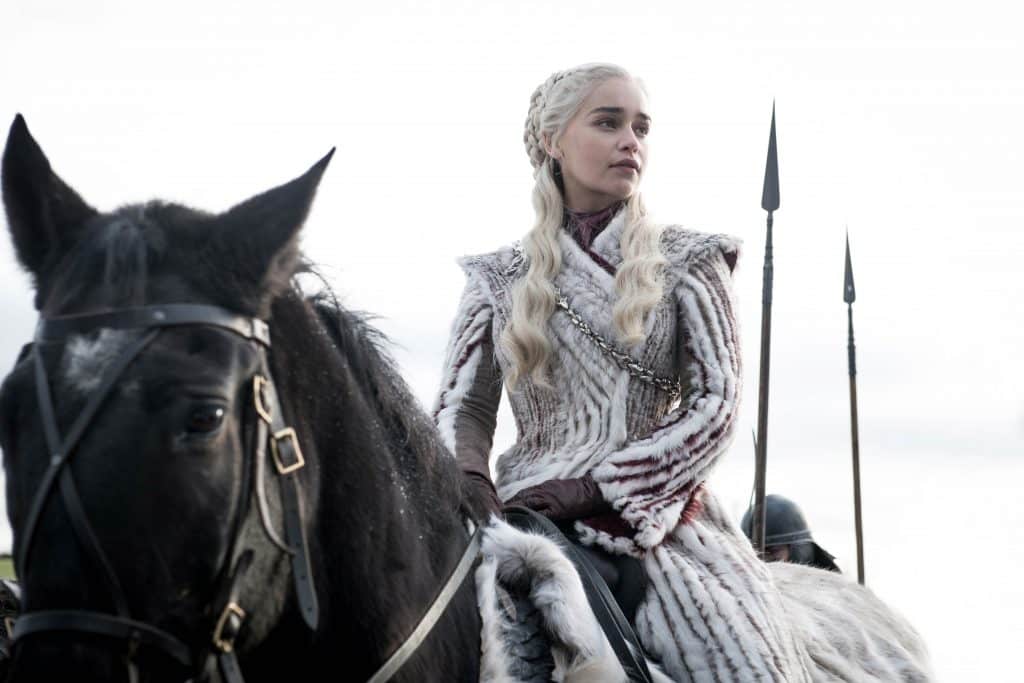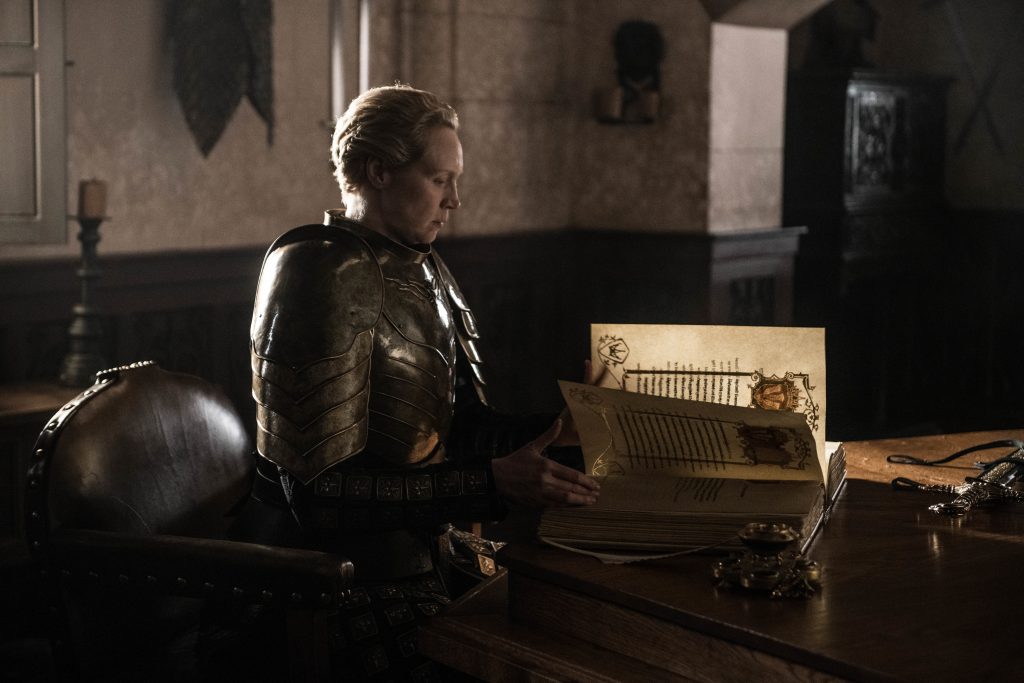Looking back on the final season of Game of Thrones, it’s impossible not to see the many ways the showrunners let down their story and the characters in it.
We probably should’ve seen this coming. In an April interview with “Entertainment Weekly,” Game of Thrones showrunners David Benioff and D.B. Weiss revealed their plans for May 19, 2019, the day their decade-long saga would finally air its conclusion. “We’ll be in an undisclosed location, turning off our phones and opening various bottles,” said Weiss. “At some point, if and when it’s safe to come out again, somebody will give us a breakdown of what was out there without us having to actually experience it.” Benioff added, “I plan to be very drunk and very far from the internet.”
Good call. Now that the dust – and ash – has settled, let’s talk about all the ways Game of Thrones dropped the ball.
It’s worth mentioning that this show hasn’t been firing on all cylinders for a while. By my count, the last time this series delivered a truly exceptional run was back in season 4 (five years ago). The penultimate season – which aired back in 2017 – featured teleporting characters, that pointless Arya/Sansa gambit, and a host of other problems. I’m not here to beat a dead horse, but it’s fair to say that since this show moved past the books (around season 5, though I haven’t read the source material), there’s been a steady decrease in quality.
But there are some issues that have plagued this series throughout its run – let’s talk about the performances. Now, Thrones obviously boasts a talented ensemble, with Peter Dinklage, Lena Headey, Nikolaj Coster-Waldau, Maisie Williams, Sophie Turner, and Gwendoline Christie turning in standout work for eight seasons. However, the same cannot be said of Kit Harington and Emilia Clarke.
The Mother of Dragons and the one-time King in the North have always been key players in the Song of Ice and Fire, but the endgame ratcheted-up their significance – and doomed romance. Harrington has never shown much range outside of either “looking brave” or “looking confused/dumbfound.” Jon Snow has always been a void where charisma goes to die, an honorable idiot, someone people invest in because there are no better options. Therefore, the show positioning him as the tragic hero of the entire saga feels empty and unsatisfying.
By comparison, Clarke is a much stronger performer, but look no further than her confrontation with Samwell Tarly (John Bradley) in the season 8 premiere to see her own shortcomings. As Daenerys tells Sam that she’s responsible for the murder of both his father and brother, it’s really tough to get a sense of what’s going on in the queen’s head, beneath her determined exterior. It’s unclear, to a fault – though there’s an argument to be made that the blame falls on the writers, rather than the performer. Regardless, Harington and Clarke didn’t have much in the chemistry department, making their relationship feel flat and half-baked.

So the answer to the question “what’s going on in Daenerys’ head?” turned out to be “whatever the plot demanded” – but more on that later. First, the show had to deal with a catch-22 of its own making: the incoming threat of the undead. Led by the perpetually motive-less Night King, the battle with this endless army of magically reanimated goons had been brewing since the show’s very first scene. Too bad it didn’t really matter.
Why were the White Walkers heading south in the first place? Who was the Night King, and why did he care so much about Bran? With an abbreviated final season of only six episodes, perhaps it was foolish to think the show would provide some kind of backstory or justification for Mr. Frosty and his existence. But because there was so little invested in the threat of the dead, the show couldn’t really let any fan-favorites perish in the fight against them. As a result, season eight’s third installment (billed as the “biggest battle in television history”) didn’t have much to offer.
Then again, it probably would’ve helped if the episode had been visible. Aside from an exquisite and tense opening, this was a rare misstep for a series that’s always boasted well-staged battle sequences. Next to “The Battle of Blackwater,” “Watchers on the Wall,” or “Battle of the Bastards,” “The Long Night” looks murky and confusing. On the other hand, there was some narrative satisfaction to seeing (if you could squint or adjust your brightness) Arya put a dagger through the Night King’s gut.
Ironically, “The Bells”, the second-to-last episode, suffered from inverse issues. The staging here was top-notch, as Daenerys obliterated the Iron Fleet, and eventually rained fire on all King’s Landing. The camera captured every inch of the carnage, and the consequences of a dragon unleashed were clear as day. It’s just that it didn’t make sense.
Sure, Dany’s turn to the dark side was “foreshadowed,” but that’s not the same thing as actual set-up. Posing the possibility that “The Breaker of Chains” could fly off the handle and abruptly killing the show’s only prominent woman-of-color doesn’t mean you’ve actually earned such a major subversion of a formerly inspiring and well-intentioned character.
Many have argued that this “development” (if you can call it that) could have been actualized with a longer season, but I’m not so sure. It’s not like these writers have a good track record when it comes to their treatment of female characters. Benioff and Weiss are the same people responsible for the “sexposition” in the show’s first few seasons, and then proceeded to depict multiple sexual assaults without a morsel of care. Oh, and while we’re on the topic, see Jessica Chastain’s response to that baffling Sansa line about the lingering effects of her trauma.

For a series that used to relish in operating in a moral grey area, the finale presented an explicit villain, in the form of a woman we had all been rooting for. Breaking Bad spent an entire series turning its protagonist into a fascist. Game of Thrones thought it could accomplish the same in a handful of hours.
Yes, there were some quality moments in these final episodes. The second episode, “A Knight of the Seven Kingdoms,” featured a bevy of engaging and earned interactions. It was a great season for Arya Stark. “The Bells” was well-shot. But by the time the finale rolled around and Tyrion was calling Daenerys “Dany,” the show had successfully shed whatever goodwill it had left.
What was the vision here? What were Weiss and Benioff trying to say, outside of executing a list of bullet-points handed to them by George R.R. Martin? Was the point of these eight seasons really that power can only be entrusted to aloof, magical nobles with narrow goals and a desire to preserve the status quo?
By the time the credits rolled for the last time on Game of Thrones, I just didn’t care anymore. I’d forgotten why I was watching, outside of a sense of obligation and a fear of missing out. Stay in your bunker, Benioff and Weiss. When you emerge, you’ll find that the thing you made alienated just about everyone, in the service of practically nothing.